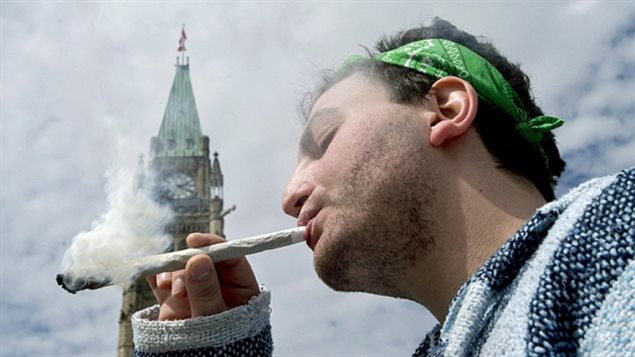Canada’s largest addiction treatment and research centre says it’s time for Canada to legalize marijuana.
The Centre for Addiction and Mental Health (CAMH) based in Toronto, Ontario says such legalization should however come with strict controls.
The group studied cannabis use and found that Canada has one of the highest rates of use in the world. It says some 40 percent of Canadians have tried the drug at least once in their lifetime, with ten percent having used cannabis in the last year. In Ontario, past-year use is estimated at 23 per cent for students in grade 7-12 and 40 per cent for 18 to 29 year-olds.
The CAMH is not really suggesting a pro-cannabis stance, saying rather that cannabis, “ is associated with a variety of health harms like problems with cognitive and psychomotor functioning, respiratory issues, cannabis dependence and mental illness.”

“Canada’s current system of cannabis control is failing to prevent or reduce the harms associated with cannabis use,” said Dr. Jürgen Rehm, Director of the Social and Epidemiological Research Department at CAMH. “Based on a thorough review of the evidence, we believe that legalization combined with strict regulation of cannabis is the most effective means of reducing the harms associated with its use.”
The CAMH says that criminalization not only hasn’t worked but enforcement of laws costs the country about $1.2 billion per year. It says the laws do not deter people from using it, but rather exposes them to criminality, and other drugs, and the risk of a criminal record.
The CAMH says that any reform of Canada’s system of cannabis control must include a strong focus on prevention and a range of interventions aimed at groups that are at higher risk of harm, including youth and people with a personal or family history of mental illness.”
CAMH recommendations
-government monopoly on sales
-set a minimum age
-limit availability (caps on retail density, limited hours of operation)
-curb demand through pricing (high to limit access, but not too high so as to encourage black market)
-curtail high potency products
-prohibit marketing-advertising-sponsorship
-expand addiction treatment
-address/prevent cannabis impaired driving
-invest in education and prevention
Dr. Rehm says Canada should take a different approach than that of other countries such as recent legalizations in the US, and abroad.
He says “Legalization of cannabis must be governed by strict regulations that ensure it is not sold like other commodities. This would include a government monopoly on sales, limits on availability, a pricing system that discourages use of higher-harm products, and a ban on marketing.”
Ian Culbert, executive-director of the Canadian Public Health Association, welcomed the call for legalization by CAMH.
“The war on drugs has failed and it has done more damage than any possible good,” said Culbert. “So we have to take a different approach.”
http://www.camh.ca/en/hospital/about_camh/influencing_public_policy/Documents/CAMHCannabisPolicyFramework.pdf







For reasons beyond our control, and for an undetermined period of time, our comment section is now closed. However, our social networks remain open to your contributions.